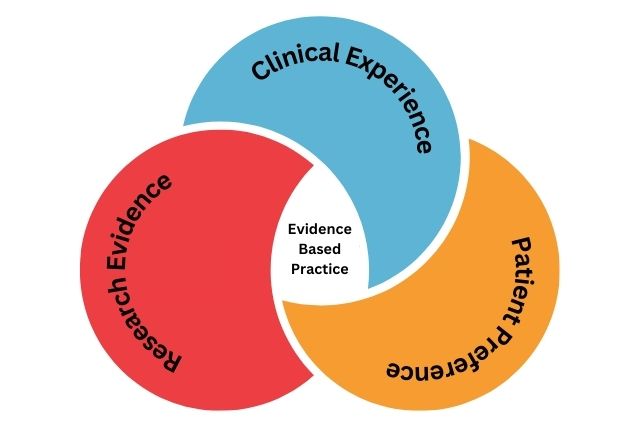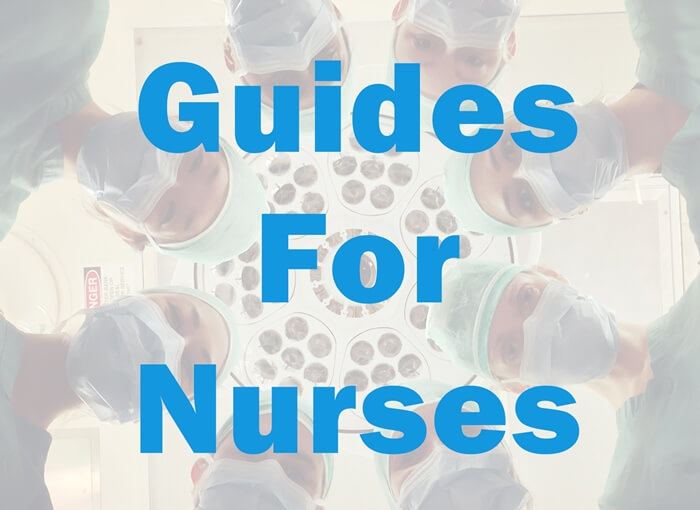Becoming a nurse can be an extremely rewarding career choice that allows you to have a positive impact on the lives of everybody that you help, and it can support your family financially much better than many other careers available right now.

There are a range of entry points to becoming a nurse with varying requirements so that you can get started quickly and then progress up the ranks into higher positions with more responsibility and pay, or you can train longer and start off in higher positions.
Deciding if you should pursue a career as a nurse should start with weighing the pros and cons of nursing. Becoming a nurse can be challenging, costly, and will require dedication and long hours even just to be certified as a nurse.
Consider these pros and cons to help you decide if being a nurse is right for you.
Pros Of Being A Nurse
High Paying Positions
A lot is demanded of nurses, and the entry requirements to becoming a nurse aren’t always easy; however, nurses can start off with very high pay, especially in locations that have a significant demand for new nurses, such as California, Florida, Hawaii, etc.
The average salary in the US for a registered nurse is around $80,000, and the average starting salary is $60,000. So you can expect to start earning high pay quickly and then progress up as your experience and role change.

If you decide to specialize in other areas, move locations, or even switch departments, you can increase your pay over $100,000. Typically the highest you would be paid as a nurse is around $200,000 as a nurse anesthetist.
By switching locations, you can also increase your pay without additional training, California, for example, has an average salary for registered nurses as high as $120,000.
Range Of Career Opportunities
Entry to the nursing profession can be done in a few different ways that you can pick from based on your current needs or situation.
Either you can get a job quickly with lower entry requirements but lower pay, or you can take your time with a full bachelor of nursing degree that could take 3-4 years and become a registered nurse that earns $60,000 in a starting position.

Whatever path you take, you can continue your education and move into a variety of different roles. Even if you pick the shorter path, you can continue to your bachelor’s of nursing while you’re orking, so this can put added strain on your time.
As a registered nurse, you will be able to move into a variety of different positions in clinical environments, teaching, public health, and many others. Pay can change drastically, work-life balance can be improved, and you can have a variety of different roles in your career.
Once you’ve completed a few years as a registered nurse, your career paths open up a huge number of options to meet your life goals.
Shorter Work Weeks
For a typical nurse, the working days can be much longer at 12-hour shifts, but in many situations, your work week can be between 3-4 days on with 3-4 days off.
So if you don’t mind working a few extra hours a day, you can drastically increase your days off to spend more time with family and friends or simply relax more and enjoy life without the stress of having to work too often.
Cons Of Being A Nurse
Dealing With Bodily Fluids
As a nurse, you’re going to be dealing with bodily fluids at least for the first few years of your career, and if you stay in a clinical setting, then bodily fluids will be part of your daily routine for the rest of your career.

You will need to handle fluids, sensitive patient exams, injecting things into patients, taking blood, and a range of other things that not everybody may be comfortable with.
This is partially why nurses have scrubs and nursing shoes so that their regular clothes aren’t destroyed by blood and other fluids that get on them constantly.
Highly Stressful Situations
Nurses need to deal with stressful situations in a calm, collected, and intelligent manner. You may be dealing with abusive or combative patients, unhappy patients that receive bad news, injured patients that are in serious pain, and a range of other stressful situations throughout your day.

While in these stressful situations, you still need to maintain professionalism and do your job, which can be challenging to recall all the information that you need to treat patients safely.
If you can’t handle stressful situations, it’s possible that you may make a serious mistake and cause significant problems or even death to a patient.
Dealing With Sick Or Dying Patients
As a nurse, you need to act with compassion, but you will likely be dealing with many patients that are seriously sick or dying. Unfortunately, not every patient that you treat will leave the hospital alive, and it’s something you’ll need to deal with over the course of your career.
Some nurses can’t handle these types of situations and need to leave as the stress and emotional toll that their dying patients have on them is too much to handle. For other nurses, they stay professional but turn off personal connections with their patients, which helps for their career but can result in other parts of their lives missing personal relationships or caring personally for others.
Frequently Asked Questions
Is being a nurse a stressful profession?
Nursing can be a challenging and demanding profession, and it’s not uncommon for nurses to experience stress. The nature of the job, dealing with critically ill patients, long hours, and high-pressure situations can contribute to stress levels. However, it’s important to note that nurses are trained to manage stress effectively and have support systems in place to help them cope. Despite the challenges, many nurses find their work incredibly rewarding and fulfilling.
What are the pros of being a nurse?
There are numerous pros to being a nurse. Firstly, nurses have the privilege of making a positive impact on the lives of patients and their families. The ability to provide care, comfort, and support during times of need is deeply fulfilling. Secondly, nursing offers a wide range of career opportunities and specialization options, allowing nurses to pursue their areas of interest. Additionally, nursing is a respected profession that provides job security and competitive salaries. Lastly, nurses often develop strong bonds with their colleagues and form a supportive community within the healthcare field.
Are there any cons to being a nurse?
While nursing has many rewards, it also comes with its share of challenges. One of the cons of being a nurse is the potential for physical and emotional exhaustion due to the demanding nature of the job. Nurses often work long shifts, handle stressful situations, and may face burnout if self-care is not prioritized. Additionally, nurses may encounter difficult patients or witness tragic outcomes, which can be emotionally draining. However, with proper support, self-care, and a strong sense of purpose, nurses can navigate these challenges effectively.
What skills are important for a successful nursing career?
Several skills are important for a successful nursing career. Firstly, strong communication skills are essential to effectively interact with patients, their families, and the healthcare team. Nurses must be able to listen attentively, convey information clearly, and provide emotional support. Critical thinking and problem-solving skills are also crucial for making sound clinical judgments and adapting to changing situations. Compassion, empathy, and a genuine desire to help others are qualities that contribute to a successful nursing career. Additionally, organizational skills, attention to detail, and the ability to work well under pressure are important for managing multiple responsibilities in a fast-paced environment.
You may also like
Nurse-Patient Communication: Strategies for Effective and Compassionate Care
The Crucial Role of Nurse-Patient Communication Nurse-patient communication stands at the heart of effective and…
Nursing Education in the Digital Age: Innovations and Challenges
The Transformation of Nursing Education Nursing education has undergone a remarkable transformation with the integration…
Nursing Research and Evidence-Based Practice: Advancing Healthcare Outcomes
The Essence of Nursing Research Nursing research is the driving force behind evidence-based practice, representing…
Guides For Nurses
Alegria Debra Women’s Slip-On Review
Alegria Debra women`s slip-on is an imported nursing shoe that is made of the following:…
The Best Skechers Nursing Shoes for walking or working
The Skechers Nursing shoes are a trusty companion. When it comes to choosing a profession…






